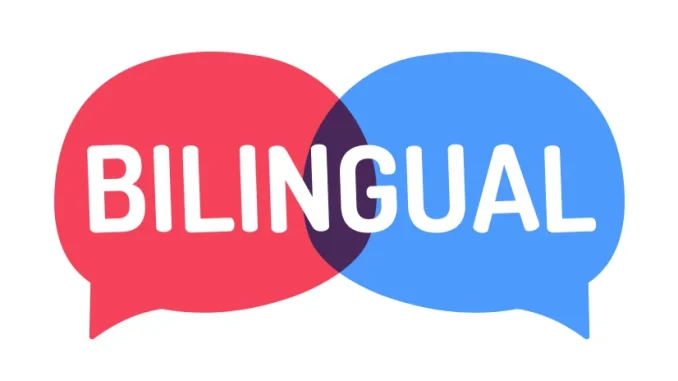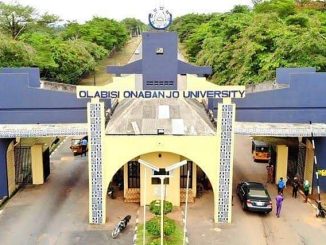
As the world becomes more interconnected, Bilingual Education to speak more than one language is not just a luxury but a necessity in many areas of life. Bilingual education, which teaches students in two languages, is an approach that goes far beyond linguistic skills—it enhances cognitive, academic, social, and economic opportunities. Understanding the importance of bilingual education highlights its role in shaping well-rounded, adaptable, and capable individuals. Here’s a more detailed exploration of why bilingual education is essential in today’s global society:
1. Cognitive Advantages
Bilingual education significantly enhances cognitive development in students. Learning and regularly using two languages help to strengthen the brain’s executive function, the part responsible for complex problem-solving and decision-making. Cognitive flexibility, the ability to switch between tasks or thoughts, is higher in bilingual individuals. This is due to their experience in constantly switching between two languages, which requires focus and quick adaptation.
Studies have shown that bilingual individuals demonstrate stronger memory skills, heightened attention control, and better overall mental agility. They are also more adept at understanding abstract concepts and have heightened creativity and innovation. Importantly, bilingualism seems to develop these cognitive benefits regardless of age, which means that starting early or even in adulthood yields benefits. 5 Ways to Find A Great Teacher
Additionally, research indicates that bilingualism can delay the onset of neurodegenerative diseases such as Alzheimer’s. Since the brain is constantly engaged in managing two languages, this continuous activity promotes better brain health and cognitive resilience in later life.
2. Improved Academic Performance

Contrary to the belief that learning two languages may confuse students or hinder academic achievement, bilingual education has been found to boost academic performance. Bilingual students often outperform their monolingual peers in various subjects, including reading, mathematics, and science. One reason is that learning multiple languages increases metalinguistic awareness—understanding the structures and rules of language—which helps in grasping the complexities of subjects like grammar, syntax, and vocabulary.
Moreover, learning a second language strengthens the student’s understanding of their first language. Studies show that bilingual children tend to score higher on literacy tests in both languages. By learning to think critically about language, bilingual students often develop stronger reading comprehension and writing skills. The cognitive benefits from bilingualism contribute to their ability to focus and learn more efficiently, which leads to better academic results.
3. Cultural Awareness and Global Competence
In an increasingly multicultural world, understanding different cultures is more important than ever. Bilingual education opens the door to new perspectives, fostering cultural awareness and empathy. When students learn a new language, they are not just learning words and grammar; they are also absorbing the cultural nuances, traditions, values, and histories that are inherently tied to that language. Holy Family College, Oku Abak
Bilingual education encourages global competence, helping students to become culturally sensitive and open-minded individuals. They learn to appreciate diversity, challenge stereotypes, and navigate intercultural interactions more smoothly. This cultural awareness is vital in today’s globalized society, where communication and collaboration across borders are more frequent and essential. Bilingual individuals are often better equipped to adapt to different cultural settings and understand the world from multiple perspectives.
4. Social Benefits: Enhanced Communication and Relationships
Bilingual individuals have broader social networks because they can communicate with a wider range of people. This ability to bridge language gaps often leads to richer, more meaningful connections. In bilingual or multilingual households, children who grow up learning multiple languages are better able to communicate with extended family members who may speak different languages. This not only strengthens family bonds but also preserves cultural heritage, ensuring that language and cultural traditions are passed down through generations.
Additionally, bilingual education helps students develop greater empathy and perspective-taking skills. Since they are more accustomed to understanding and interpreting different cultural and linguistic contexts, bilingual individuals are often more skilled in reading social cues and understanding diverse points of view. This fosters better teamwork, communication, and leadership skills—traits that are increasingly valued in the modern workforce.
5. Career and Economic Opportunities
One of the most compelling benefits of bilingual education is the competitive edge it offers in the job market. In an era of globalization, businesses are expanding internationally, and the ability to communicate with clients, partners, and colleagues in multiple languages is highly sought after. Bilingual individuals can access a wider range of job opportunities, especially in industries like international business, diplomacy, translation, tourism, healthcare, and education.
Bilingualism also increases earning potential. Employers often offer higher salaries to individuals who can speak more than one language, particularly in roles where communication with diverse populations is crucial. In some regions, bilingual skills are considered a key qualification for leadership positions, as they enable more effective negotiation, relationship-building, and management across cultures.
Additionally, the rise of remote work has expanded job opportunities across borders, making bilingualism even more valuable. A bilingual individual can apply for jobs or freelance opportunities in countries where the second language is spoken, further widening their career prospects.
6. Delayed Cognitive Decline
Bilingualism is associated with long-term cognitive health benefits, particularly in relation to aging. Research indicates that bilingual individuals tend to experience cognitive decline, including diseases like Alzheimer’s, later than monolinguals. This delay is believed to stem from the constant mental exercise that comes with switching between languages and managing two linguistic systems.
Because the brain is regularly challenged in managing dual language processing, it remains more resilient and active in old age. This “cognitive reserve” helps the brain compensate for age-related losses in other areas, slowing down the impact of neurodegenerative diseases. For older adults, learning a new language or maintaining bilingualism can be a form of mental fitness that preserves brain function over time.
7. Increased Adaptability and Problem-Solving Skills
Being bilingual enhances mental flexibility, making individuals more adaptable and resourceful. The act of constantly switching between two linguistic systems encourages stronger problem-solving abilities and greater creativity. Bilingual individuals are often more skilled at finding alternative solutions, thinking outside the box, and approaching problems from different angles.
This adaptability extends beyond language. In a multicultural environment, bilingual individuals are better at managing cross-cultural challenges, understanding differing viewpoints, and finding common ground in negotiations or group settings. These skills are crucial not only in everyday life but also in leadership and professional environments, where the ability to solve problems quickly and efficiently is highly valued.
Conclusion
Bilingual education offers far-reaching benefits that touch on nearly every aspect of a person’s life. From cognitive and academic gains to cultural understanding, social relationships, and career advancement, the advantages of learning a second language are undeniable. In today’s interconnected and multicultural world, bilingualism is an essential skill that prepares individuals for a more successful and fulfilling future.
Investing in bilingual education equips students with the tools they need to navigate a globalized world, helping them to think critically, appreciate diversity, and seize the opportunities that come with cross-cultural competence. The cognitive, social, and economic rewards make bilingual education a powerful asset that can transform lives and societies for the better.




Be the first to comment